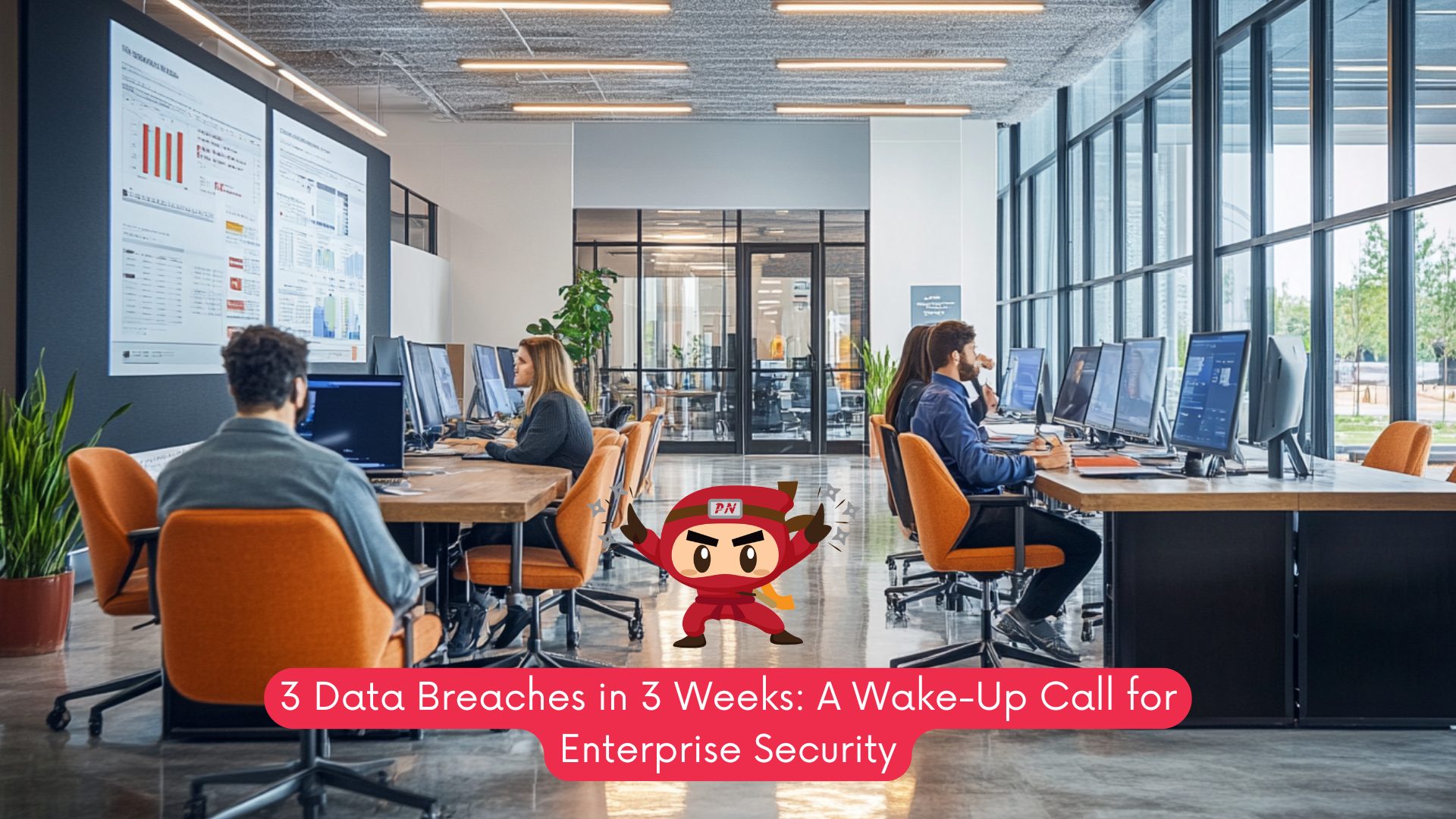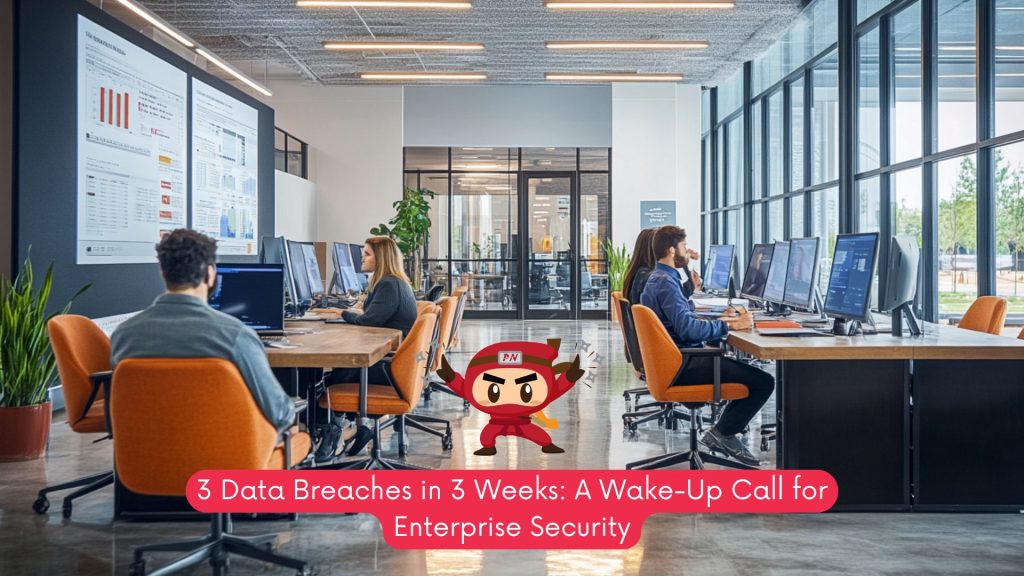KEEP IN TOUCH
Subscribe to our mailing list to get free tips on Data Protection and Cybersecurity updates weekly!







In a span of just three weeks, three significant data breaches hit some of the world’s most recognisable enterprises: Ingram Micro, United Natural Foods Inc. (UNFI), and McDonald’s. These breaches unfolded across distinct sectors, including technology distribution, food logistics, and global retail, and together, they spotlight a systemic lapse in basic cyber hygiene.
None of the breaches involved cutting-edge exploits or nation-state-grade espionage. Instead, they stemmed from elementary security failures that could have been avoided. These incidents are more than cautionary tales; they are a preview of what lies ahead if businesses continue to prioritise scale over security.
In early July 2025, Ingram Micro, one of the world’s largest IT distributors, fell victim to a ransomware attack attributed to the SafePay gang. The incident disrupted internal systems, including order platforms, EDI portals, and phone services, and was contained by 9 July, though full restoration took days. What makes this breach especially troubling is that Ingram Micro is not just any company; it is a major player in the industry. It resells top-tier cybersecurity products such as Okta, Sophos, ESET, and offers penetration testing and risk-scoring tools.
Yet, these defences were not enforced internally. This was not a technological capability failure; it was an execution failure. The attackers exploited weaknesses in VPN credentials and disabled endpoint defences, underlining that a discipline gap, not a tool gap, left critical systems exposed. Ingram Micro’s quick restoration efforts and engagement with third-party experts demonstrate strong incident response capabilities. However, the real failure lay in prevention.
Had the firm applied its solutions, such as enforcing multifactor authentication consistently, deploying behavioural endpoint analytics, isolating backups, and conducting regular red-team exercises, this attack might have been contained or averted entirely. Instead, the breach became emblematic of a broader leadership failure: even companies that sell security must embed it deeply within their own organisational culture.
Two weeks before the Ingram Micro incident, UNFI, the primary supplier to Whole Foods, experienced a ransomware breach that disrupted its operations. The attack paralysed food logistics, delayed shipments, and exposed vulnerabilities in the nation’s just-in-time supply chain. Cybersecurity in logistics is often dismissed as an IT problem. However, the UNFI breach underscores that it is, fundamentally, a business continuity issue.
When logistics networks are compromised, deliveries stall, shelves remain empty, and consumers feel the impact directly. The ripple effect can cause widespread disruption in industries that rely heavily on time-sensitive fulfilment. The fact that two critical supply chain players were compromised in quick succession suggests a broader trend. This is not merely coincidental; it reflects structural weaknesses in the cybersecurity posture of the supply and distribution sector.
Around the same period, McDonald’s faced an alarming breach involving its AI-driven recruitment tool, McHire. Cybersecurity researchers uncovered that the system’s admin portal could be accessed using a default username and password combination: “admin” and “123456”. This allowed unauthorised individuals to retrieve sensitive data on millions of job applicants. The scale of the exposure, which potentially affects 64 million individuals, is staggering.
Unlike traditional ransomware or malware-based attacks, this breach was the result of poor configuration and an absence of basic access controls. No advanced intrusion techniques were needed. It was a failure rooted in negligence and a disregard for fundamental security practices. The implication is serious: critical systems and personal data were left defenceless by something as preventable as unchanged default passwords.
These breaches further emphasise the importance of embedding practical, enforceable solutions that go beyond checkbox compliance. Instead of relying solely on external frameworks like CMMC, NIST, or CIS Controls, organisations should consider integrated, hands-on support from trusted providers such as Privacy Ninja.
With offerings like Vulnerability Assessment and Penetration Testing (VAPT), outsourced Data Protection Officer-as-a-Service (DPOaaS), Smart Contract Audits, and Data Breach Management, Privacy Ninja enables companies to operationalise their cybersecurity strategy in ways that are both agile and accountable. These services are designed to bridge the gap between security policy and daily practice, turning intent into action and risk into resilience. While no solution guarantees immunity, failing to invest in real, tested defences is often the fastest route to exposure.
The biggest lesson from these three incidents is not about malware or misconfiguration. It is about accountability. These companies are not small players. Ingram Micro is a tech giant. UNFI underpins a major food supply chain. McDonald’s is a global household name. Their failure to enforce basic security measures suggests a deeper cultural problem within enterprise IT: one that rewards convenience over caution, speed over scrutiny.
Security is not a feature to be toggled on after deployment. It must be embedded in design, enforced through governance, and modelled from the top. From default passwords to untested APIs and unscanned networks, every oversight is a breach waiting to happen. Unless there is a shift in how organisations view and implement security, these incidents will not remain isolated. They will become the norm.
The breaches at Ingram Micro, UNFI, and McDonald’s were preventable. Each of them stemmed from basic lapses: weak passwords, lack of access control, and inadequate testing. As the threat landscape becomes more complex, these foundational missteps are increasingly inexcusable.
Organisations must move beyond reactive responses and build proactive security strategies rooted in governance, accountability, and culture. The next breach is not a possibility. It is an inevitability unless we change the way we think about and implement cybersecurity. The wake-up call has been rung. The question is: will anyone listen?